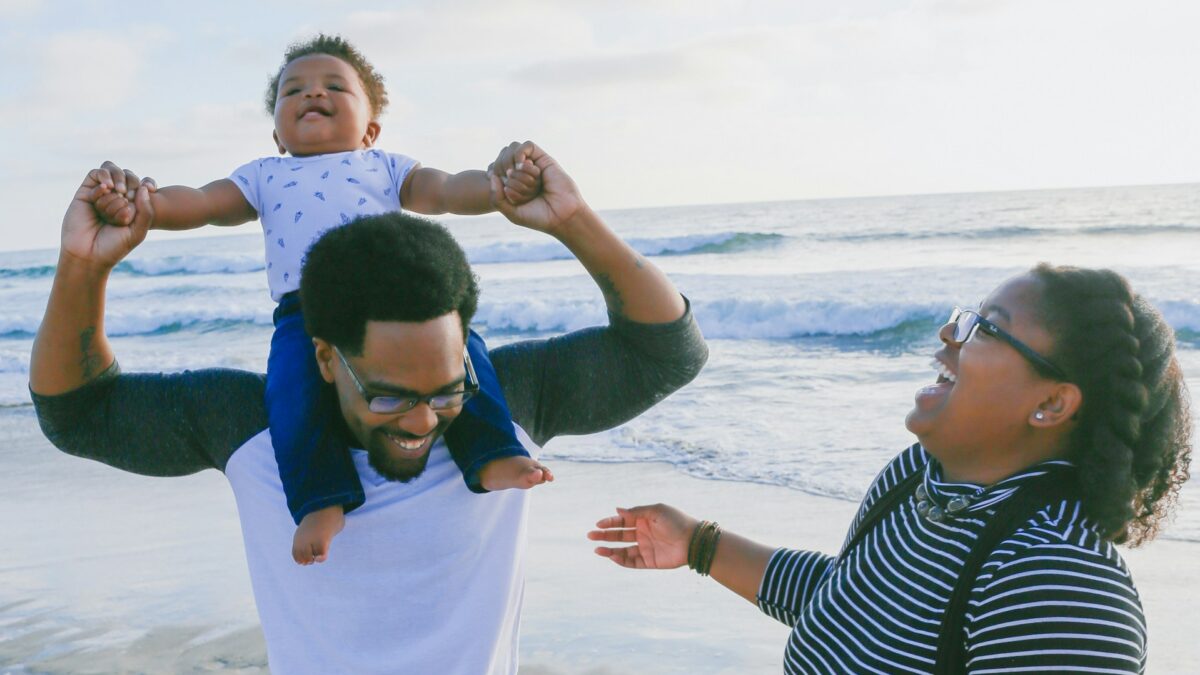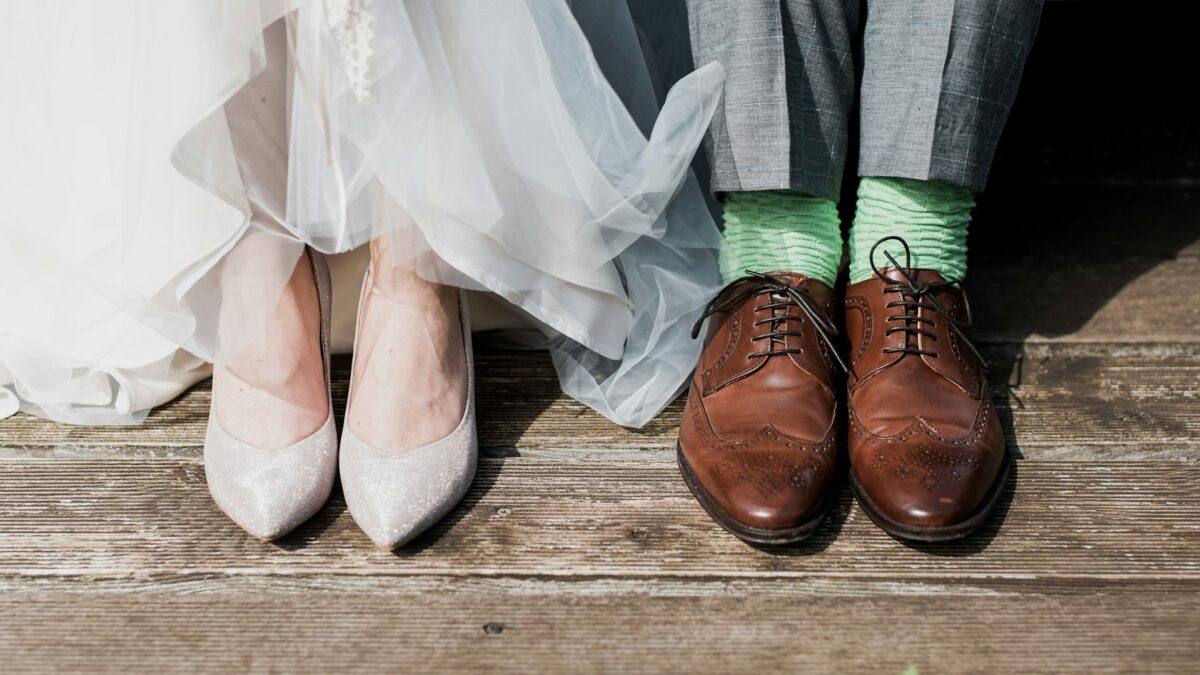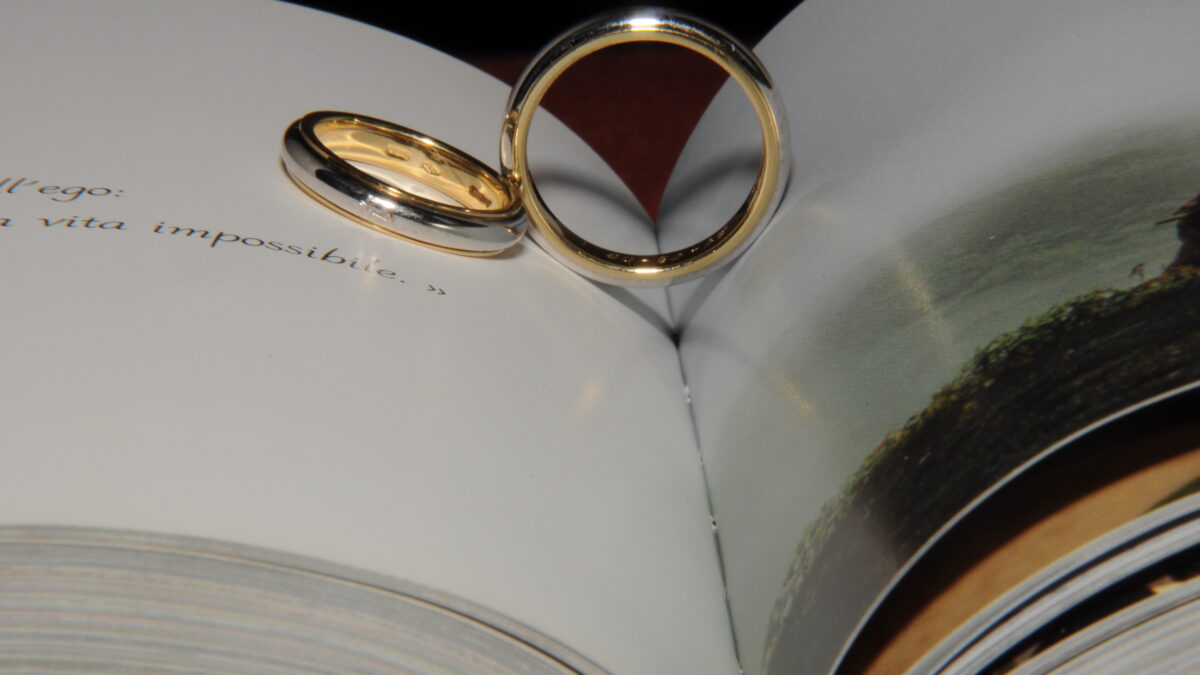
A few days ago, I woke up in the early dawn because I felt a tickle on my left shoulder. Opening my eyes, I saw a bug, and not just any bug. It was a scutigera coleoptrata, a nasty house centipede sporting a forest of legs. It was crawling on me. I jumped out of bed, emitting the sound one naturally emits when a hairy, leggy, gross-looking insect invades the sanctity of one’s bed.
My husband, initially alarmed, started laughing when he realized the problem. When he finally stopped, he let out a long, contented sigh. “That’s the girliest thing I’ve ever seen you do,” he said. “That was awesome.” I’m pretty sure bearing his sons is the most girly thing he’s seen me do. But I take his point.
Some Women Are Around Men More
I’ve never been very girly. In childhood, I never formally protested my femininity by donning the backwards baseball cap (too cliché), but I had no interest in dolls, ponies, beads, or ballet. Even in the bad old 1980s, American girls weren’t scolded all that much for gender non-conformism. I expect my mother was disappointed when her wonderful talents as a seamstress went unappreciated, but she generously kept those feelings to herself.
Throughout my adolescence and beyond, I was constantly hanging around with boys, but none of them were boyfriends. My interests seemed to steer me towards classes or clubs where girls were in the minority. It didn’t much bother me, and Mom didn’t panic either. I think she assumed that a girl who knew so many boys had to find a special one eventually. She was right. I met my husband in graduate school, and our very first conversation concerned the relative merits of analytic and continental philosophy. Some men like that kind of girl.
Marriage raised certain new questions about my relationships to men who weren’t my husband. I take matrimony very seriously, but male friendship has always been a significant part of my life too. It seemed to me that many of the guidelines that fellow religious conservatives recommended would be fairly problematic for me professionally and personally. Surely it should be possible to respect the sanctity of marriage without self-selecting out of beneficial professional opportunities, or wishing my male friends au revoir?
There’s Some Disadvantage to the Mike Pence Rule
In one sense, opposite-sex friendship might seem easy for a woman who is so used to it. I’ve had hundreds of male friends in my life, and only one became a lover. It seems natural that a lunch can just be lunch, a car ride just a car ride, and an extended discussion of Hayekian versus Randian libertarianism precisely that.
That’s not enough to settle the matter, though. Out of friendship, other kinds of feelings can grow, and married people should take active steps to ensure that they don’t. This presumably is why some people choose to limit contact with non-familial members of the opposite sex, perhaps avoiding private meals or shared drinks, or time alone in cars or offices.
I had mixed feelings about the Mike Pence “protecting my marriage” controversy. On the one hand, it’s lovely to see an important and powerful man disciplining himself to show his wife that he is committed to their marriage. That’s a great example to set. On the other hand, I don’t love the idea that the “Mike Pence rules” might become semi-normative for conservatives all across the nation.
If you’re a male social worker or a female in the tech industry, the “Mike Pence rules” might be socially isolating, and a real hindrance to your career. For instance, Pence doesn’t drink at mixed-company gatherings unless his wife is present. As a personal choice, that is fine; nobody should be obligated to drink alcohol at social gatherings. I, however, have multiple times found myself at a conference with perhaps two or three women among a few dozen participants.
Emphasizing This Can Have Social Consequences
If conservatives started informally viewing “Pence rules” as an expectation, that could be somewhat uncomfortable for me. People normally can’t bring their spouses to conferences, and it’s awkward to think that my dining companions might see my mere presence at dinner table as the reason they can’t have a glass of red wine with their steak. It seems like it might be easy to go from there to, “Wouldn’t it be nice if those two or three women weren’t here?”
It’s also pretty common for both scholars and journalists to use coffee or lunch as an occasion to discuss a story or paper, or just a topic of mutual interest. Often these meetings skirt the line somewhat between business and pleasure. Scholars usually like discussing ideas, and two colleagues might well get together just to discuss an argument or area of research that is of interest to both.
It’s not exactly a “business meeting.” But those kinds of informal interactions are the stuff from which professional networks are built, so a woman in a male-dominated field or a man in a female-dominated field will be at a disadvantage if people see it as improper for married people to get together in that way.
Here’s the interesting thing though: even as the Pence rules are potentially too restrictive, they may also not be restrictive enough. Among people who take marriage seriously, there’s very little danger of suddenly forgetting ourselves and arranging a tryst with a random fellow conference-goer.
On the other hand, anyone who befriends people of the opposite sex should be attentive to the issue of emotional attachment. Friendship is good, but even casual interactions can create a sense of intimacy, which can lead to the sort of emotional dependence that may threaten a marriage. That kind of closeness, though, could develop in all kinds of ways, which needn’t involve shared food or drinks, or even being in physical proximity. Lots of people fall in love online nowadays.
Do we have to ban opposite-sex friendship altogether? That’s pretty depressing. A less-drastic alternative might combine honesty (letting your spouse know who’s joining you for coffee or a professional lunch) with an appropriate attention to the “emotional distance” that is fitting for opposite-sex friends. This last point requires you to be clear in your own mind about the difference between friendship and marriage.
Friends Give You Freedom and Flexibility
Marriage takes work, and some of that work is difficult. It can’t be all waltzes and candlelight dinners, because part of the point is to stick together through good and bad times. The upside of this is that you won’t be alone through the bad times. It also means, though, that you’ll surely share some bad times. Not all of the memories you make with your spouse will be magical. That all applies before you bring the kids into it, and trust me: Kids make it that much harder.
Especially if you and your spouse are shouldering a lot of stress at the moment, lighthearted moments with friends can provide some relief. Sometimes the shallowness, or at least the more targeted nature of our friendships, is part of what makes them enjoyable. Stressful or uncomfortable topics can just be avoided for the ninety minutes you spend with a particular friend, as you revel in your mutual love of Japanese gardens (or whatever).
If your friend is a ludicrously picky eater, you can just meet for coffee instead of lunch. If she has an annoying habit of talking during movies, don’t make that a movie-going friend. There is a freedom to friendship that familial relationships tend not to have. With friends, you can tailor your interactions around common interests, and limit the relationship to that.
That freedom can be very pleasant, and it’s fine to enjoy that, up to a point. With opposite-friends, you do need to be more conscientious about maintaining appropriate context. Beyond the really obvious things (like decorum in dress), I think emotional closeness is the key.
Evaluate Your Feelings About Friends
If you have an idea and immediately think, “Oh, I can’t wait to discuss that with opposite-sex-friend!” ask yourself why you’re excited to talk to that person and not your spouse. If the reason is just that your friend shares your love of opera and your spouse doesn’t, that’s probably okay. If the friendship seems to be creeping outside those more targeted areas of mutual interest, it might be prudent to see less of that person, and to work on strengthening your friendship with the man or woman you married. An opposite-sex friend shouldn’t be the person you’re most eager to tell when you get really good (or really upsetting) news.
Sometimes the practicalities of married life seem to be stacked against you. More than once, I’ve had an enjoyable conversation with a stranger at a conference dinner, and thought wistfully, “That was nice, but I wish my husband could have been the man across the table for that length of time.” At home, the kids rarely leave us undisturbed for so long.
I suspect that many marriages run into trouble just over a failure to put the pleasures of friendship in their proper place. An enjoyable conversation or a passing moment of mirth supply a stark contrast to the tense discussion you had with your spouse this morning, and you become confused. Why is this person making you feel good today, when your spouse isn’t?
Stay out of those treacherous waters by reminding yourself of what marriage really is. Modern people put a lot of stock in the emotional component of romantic love, which is fine to a point. If you start imagining that Jim must be your true soul mate, because he shares your love of pottery when Jack never has, you’ve definitely passed the point.
We shouldn’t have to choose between getting married and having friends. The way to avoid that, though, is by keeping different relationships in their proper places.
My Man’s Still It, And It’s Going to Stay That Way
A few weeks ago, my husband and I celebrated our tenth wedding anniversary. We’re hoping this will be the first of many decade-versaries, so we kept it simple. We had dinner, saw a photography exhibit, and came home to find our kids watching dancing chimneysweeps with their babysitter.
Being out with my husband (for a whole evening!) got me reflecting on how much I still enjoy the simple boy-girl dynamics of a date. You’d think that might all get buried under the mountain of stress and responsibility. Sometimes it does, but that pleasure can re-emerge with surprising ease, and it’s still very sweet.
The simple things are still fun. Me putting on a skirt for him. Him pulling out a chair for me. There’s a palpable pleasure that comes just from strolling through a gallery, being a couple. It reminds you of the thrill you got at 16, when a boy called to invite you to a dance. “You boy. Me girl. Us together.” It never really gets old.
As a married woman, I take pains to ensure that my husband is the only man who makes me feel like that. He is, and I’m grateful for it, because even if you’re not a “pretty in pink” sort of lady, it still feels good sometimes just to be a girl.
Right here I could burst into a rendition of “Natural Woman,” but it’s a little soon after the bug incident to start gunning for a new record. So I’ll just say that I do value my friends of both sexes, as I have my entire life. But that only heightens my appreciation of the man who’s still the one.









